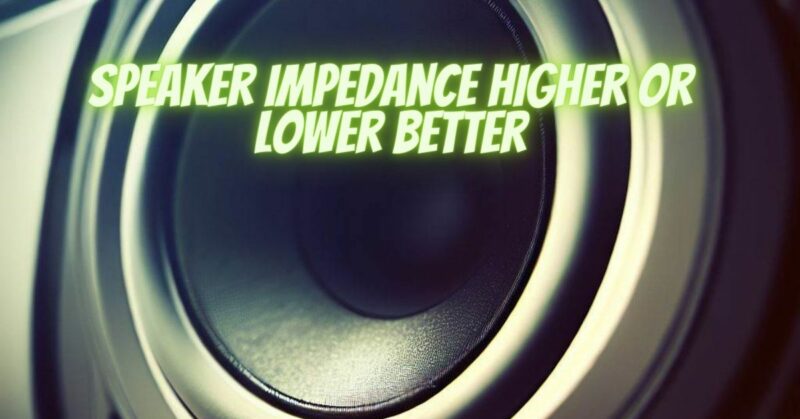Speaker impedance is measured in ohms. It is the resistance that the speaker offers to the flow of electrical current. The impedance of a speaker must be matched to the output impedance of the amplifier to avoid damage to either device.
In general, it is better to have a speaker impedance that is higher than the amplifier’s output impedance. This is because a higher impedance speaker will draw less current from the amp, which can help to prevent the amp from overheating.
However, there are some cases where it may be beneficial to have a speaker impedance that is lower than the amp’s output impedance. For example, if you are using a high-power amp, a lower impedance speaker will allow the amp to deliver more power to the speaker.
Ultimately, the best way to determine the ideal speaker impedance for your system is to consult with the manufacturer of your amp and speakers.
Here are some additional things to keep in mind:
- The amp’s output impedance is typically printed on the amp’s back panel.
- The speaker impedance is typically printed on the speaker’s label.
- If you are connecting multiple speakers to an amp, the total impedance of the speakers must be equal to or greater than the amp’s output impedance.
- You can use a speaker impedance calculator to help you determine the total impedance of a speaker system.
By following these tips, you can help to ensure that your speakers and amp are safe and sound.
Here are some of the pros and cons of using a speaker with a higher or lower impedance:
Higher Impedance
- Pros:
- Less current drawn from the amp, which can help to prevent the amp from overheating.
- More efficient, which means that less power is wasted as heat.
- Can provide a cleaner sound.
- Cons:
- May not be able to deliver as much power to the speaker.
- May not be as loud as a speaker with a lower impedance.
Lower Impedance
- Pros:
- Can deliver more power to the speaker.
- Can be louder than a speaker with a higher impedance.
- Cons:
- Draws more current from the amp, which can increase the risk of overheating.
- Less efficient, which means that more power is wasted as heat.
- Can produce a muddier sound.
Ultimately, the best way to determine the ideal speaker impedance for your system is to consult with the manufacturer of your amp and speakers.


